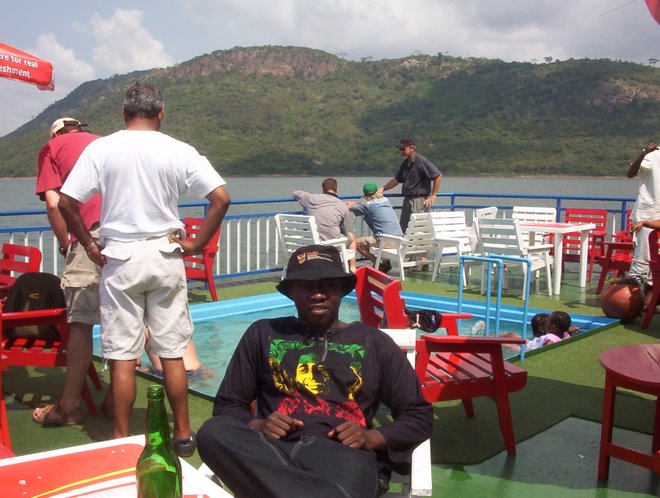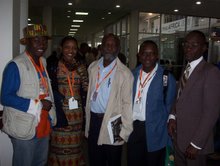Ashanti region goes to Burkina Faso to tap Agric experience

The move is to ensure that farmers and agriculture extension officers in both regions exchange ideas in the area of livestock rearing, vegetable and crop farming and also to improve upon trade links for mutual benefit.
To help concretise the partnership, the Deputy Ashanti Regional Minister, Mr Osei Assibey-Antwi led a delegation from the region to participate in an AGRO-SYLVO-PASTORIALISM forum at Boulsa, which is one of the important communities in the North Central region of Burkina Faso.
The trip was to enable the Ashanti Regional Co-ordinating Council (ARCC) concretise the partnership deal, which was first initiated by the former Regional Minister, Mr S. K. Boafo two years ago.
The Agro-sylvo-pastoral system of agriculture involves the integration of trees, crops and livestock where residues from crop and vegetable farms are not just thrown away but used in feeding livestock.
Cattle in Burkina Faso for instance are far stronger and bigger than those in Ghana. Therefore livestock farmers in Ghana are to go to Burkina Faso to learn from their experience to be able to breed stronger and bigger cows in Ghana.
According to Mr Antwi Ghana had reached a stage of declined soil fertility and scarcity of fuel wood in the coastal and northern belts of the country where cow dung, grass and cassava sticks were being used as fuel wood. 
In such instances, it was prudent that the nation try to reverse the trend through the introduction of Agro forestry practices into the farming systems and one of such systems was Agro-sylvo-pastoral, which involved the integration of trees, crops and livestock and with ecological and economic interactions among those components.
According to the Deputy Minister it was a source of great pride and inexplicable joy to have struck such a partnership deal.
Mr Antwi said the visit was yet another mile stone in the warm, friendly and mutually relationship between the North Central Region of Burkina Faso and Ashanti region.
He expressed appreciation for the invitation to be part of the programme and said such a visit was a demonstration of close linkage and collaboration between Burkina Faso and Ghana and more particularly between the North Central Region and Ashanti region.
He said being two sister ECOWAS states in the sub region and sharing common boundary, conditions were not so largely different from each other hence the need to be partners.
It was observed that even though the quality of soil in Burkina Faso was not as rich as what pertained in Ghana, the farmers were able to use it to produce very good vegetables such as tomatoes and onions.
Throwing light on the potentials of Ashanti to the Burkinabe community, the Deputy Minister said the total arable land area in Ashanti was about 57percent with about 38 percent of it under cultivation of various crops.
He said about 45 percent of the total population of Ashanti was engaged in farming as their main occupation where crop production creates a large supply of by-products that provides good grounds for a flourishing intensive livestock industry.
Mr George Badu-Yeboah, Ashanti Regional Director of Ministry of Food and Agriculture said it had been observed that palm oil and citrus for instance were not produced on a large scale in Burkina Faso hence Ghanaian farmers could take advantage and produce in large quantities to export.
He said it had also been observed that farmers in Burkina Faso used a lot of irrigation on their farms hence the need to encourage farmers in Ghana to also not only rely on rain water but develop small systems, which they could use on their farms.
She said farmers in the area were very good producers of tomatoes, onions and cereals and that 11 percent of the vegetables in Burkina were from the region.
Madam Fatimata said it was a great opportunity that her region had struck a partnership deal with Ashanti to improve upon trade links and that the government of Burkina Faso had even earmarked CFA 46billion to help revamp the agric sector.
Other countries which participated in the forum included Cote d’ Ivoire and Niger and the governor said such partnerships would help improve upon the brotherliness between the three countries.








































